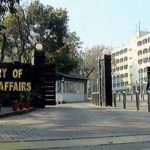ISLAMABAD, March 4 (APP): Prime Minister Imran Khan on Thursday called upon the Economic Cooperation Organization (ECO) to devise a joint strategy to ensure an equitable access and distribution of COVID-19 vaccine for the public good.
In his address to the virtual 14th ECO Summit themed ‘Regional Economic Cooperation in the aftermath of COVID-19’, the Prime Minister stressed the need for mobilizing resources of ECO countries to fight the pandemic COVID-19 effectively.
Prime Minister Khan opened the summit in Pakistan’s capacity as the chair of the 13th Summit held in Islamabad and lauded Turkish President Recep Tayyip Erdogan, the current chair, for his timely initiative amidst the COVID-29 scenario.
The Prime Minister said since the COVID-19 pandemic was still not over, there must be a collective effort for production of vaccine on an affordable rate and be declared as public good.
“No one will be safe from virus unless everyone is safe,” he said, adding that Pakistan had launched the COVID-19 inoculation with frontline workers on priority.
He mentioned that the ECO members states were severely affected by the health, economic crisis unleashed by COVID-19 pandemic with over 150 million people hit by the virus and over 2.5 million lost their lives.
He said the developing countries including ECO members countries had been disproportionately affected with economy declined and poverty increased.
Imran Khan said Pakistan faced challenges during the pandemic, however adopted a people and poor-centric approach to balance saving of lives and livelihoods.
Despite the financial constraints, he said, his government allocated an unprecedented $8 billion for the poorest and most vulnerable households through small businesses and direct handouts.
The Prime Minister said the rich countries injected $20 trillion to their economies to stimulate growth, however pointed that the developing countries did not have the capacity for fiscal space to ensure liquidity.
He recalled his proposal of a five-point plan to provide developing countries the fiscal space to recover from COVID-19 crisis including debt relief, creation and redistribution of Special Drawing Rights, concessional finance, mobilization of climate finance, and ending illicit financial floors and return of stolen assets back to the developing countries.
Imran Khan pointed that $1 trillion every year was illegally transferred from poor countries to rich countries and also the tax havens.
Apart from health and economic consequences, he said, the COVID-19 crisis had exacerbated the manifestation of religious discrimination, xenophobia and Islamophobia in various parts of the world, which was witnessed in Pakistan’s neighbourhood as well.
He said COVID-19 lockdown enabled the suppression of people in occupied territories struggling for their right to self-determination.
He said it was essential to reject any attempt linking Islam with terrorism and termed it a “biggest injustice” being done to Muslims of the world. He said misuse of freedom of expression to cause pain to Muslims by denigrating Prophet Muhammad (Peace be upon Him) must be stopped.
Imran Khan said at the United Nations, Pakistan and Turkey and Organization of Islamic Cooperation (OIC) had initiated a proposal for the annual observance of an international day to combat Islamophobia.
With rich resources and enterprising people, he said, the ECO member countries represented half a billion people covering an area of eight million square miles and formed the geographical link in Asian continent east & west and north & south.
He said the common cultural and heritage was nurtured by luminaries like Al-Bairuni, Farabi, Rumi and Iqbal which could provide a solid foundation for cooperation under the ECO umbrella in sectors particularly trade, energy, tourism, agriculture and industrial growth.
He stressed that ECO countries needed to recover robustly from the economic and health crises induced by the pandemic.
He urged adopting a plan to build resilient healthcare systems to respond to such crisis in future, with a capacity to produce medical equipment to respond to chronic and infectious diseases.
Imran Khan called for developing an integrated transport network to facilitate both intra-ECO trade as a pathway for trade among major economies.
He termed Istanbul-Tehran-Islamabad commercial cargo train and proposed Uzbekistan-Afghanistan-Pakistan railway links the important regional connectivity projects besides linking China Pakistan Economic Corridor (CPEC) with Afghanistan.
He emphasized on implementing the cross-border projects already agreed upon among ECO members, including TAPI gas pipeline and the CASA 1000.
He proposed establishing an ECO Investment Agency and organizing an annual ECO Investment Fair where investment-ready projects could be presented.
He said the current eight percent mutual trade could be expanded ten-fold, adding that enhanced transport links would promote conscious measures for trade promotion.
He called for simplifying border procedures, establishing intra-regional institutional linkages, reinforcing existing regional mechanisms like ECO Trade Development Bank, operationalizing ECO Trade Agreement, and developing new initiatives like the Clearing Union.
The Prime Minister stressed promotion of ECO knowledge-based economies with enhanced allocations for research and development and rapid digitalization especially extension of broadband.
The prime minister said the rich countries injected $20 trillion to their economies to stimulate growth, however, pointed that the developing countries did not have the capacity for fiscal space to ensure liquidity.
He recalled his proposal of a five-point plan to provide developing countries the fiscal space to recover from COVID-19 crisis including debt relief, creation and redistribution of Special Drawing Rights, concessional finance, mobilization of climate finance, and ending illicit financial floors and return of stolen assets back to the developing countries.
Imran Khan pointed out that $1 trillion was illegally transferred every year from poor to rich countries and also to the tax havens.
Apart from health and economic consequences, he said the COVID-19 crisis had exacerbated the manifestation of religious discrimination, xenophobia and Islamophobia in various parts of the world, which was witnessed in Pakistan’s neighbourhood as well.
He said COVID-19 lockdown enabled the suppression of people in occupied territories struggling for their right to self-determination.
He said it was essential to reject any attempt linking Islam with terrorism and termed it the “biggest injustice” being done to the Muslims across the world. The misuse of freedom of expression to cause pain to the Muslims by denigrating Prophet Muhammad (Peace Be Upon Him) must be stopped.
Imran Khan said at the United Nations, Pakistan, Turkey and the Organization of Islamic Cooperation (OIC) had initiated a proposal for the annual observance of an international day to combat Islamophobia.
With rich resources and enterprising people, he said, the ECO member countries represented half a billion people covering an area of eight million square miles and formed the geographical link in the Asian Continent east & west and north & south.
He said the common cultural and heritage was nurtured by luminaries like Al-Bairuni, Farabi, Rumi and Iqbal, which could provide a solid foundation for cooperation under the ECO umbrella in sectors particularly trade, energy, tourism, agriculture and industrial growth.
The prime minister stressed that in advancing the common objectives, the ECO states must take full advantage of geographical location, economic assets, and political relationships.
He said peace in Afghanistan was crucial to the success of such physical integration in the ECO region and expressed the hope that the successful culmination of Intra-Afghan Negotiations would lead to durable peace and security in Afghanistan.
The prime minister also presented a six-point agenda as priorities and goals of the ECO on COVID-19, integrated transport network, intra-ECO trade, and cross-border pipeline projects.
He stressed that the ECO countries needed to recover robustly from the economic and health crises induced by the pandemic.
He urged adopting a plan to build resilient healthcare systems to respond to such crisis in future, with a capacity to produce medical equipment to respond to chronic and infectious diseases.
Imran Khan called for developing an integrated transport network to facilitate both intra-ECO trade as a pathway for trade among major economies.
He termed the Istanbul-Tehran-Islamabad commercial cargo train and proposed Uzbekistan-Afghanistan-Pakistan railway links the important regional connectivity projects, besides linking China Pakistan Economic Corridor (CPEC) with Afghanistan.
He emphasized on implementing the cross-border projects already agreed upon among the ECO members, including Turkmenistan-Afghanistan-Pakistan-India (TAPI) gas pipeline and the CASA 1000.
He proposed establishing an ECO Investment Agency and organizing an annual ECO Investment Fair where investment-ready projects could be presented.
He said the current eight percent mutual trade could be expanded 10-fold. Enhanced transport links would promote conscious measures for trade promotion, he added.
The prime minister called for simplifying border procedures, establishing intra-regional institutional linkages, reinforcing existing regional mechanisms like ECO Trade Development Bank, operationalizing ECO Trade Agreement, and developing new initiatives like the Clearing Union.
He stressed promotion of ECO knowledge-based economies with enhanced allocations for research and development, and rapid digitalization especially extension of broadband.
-Reporting by Shumaila Andleeb






